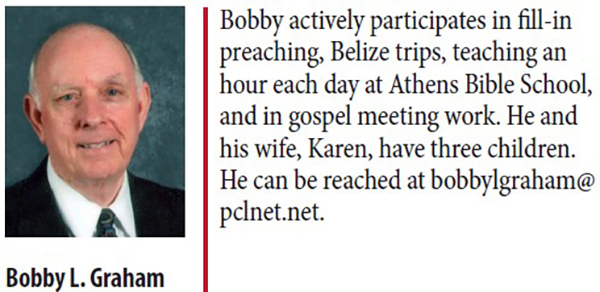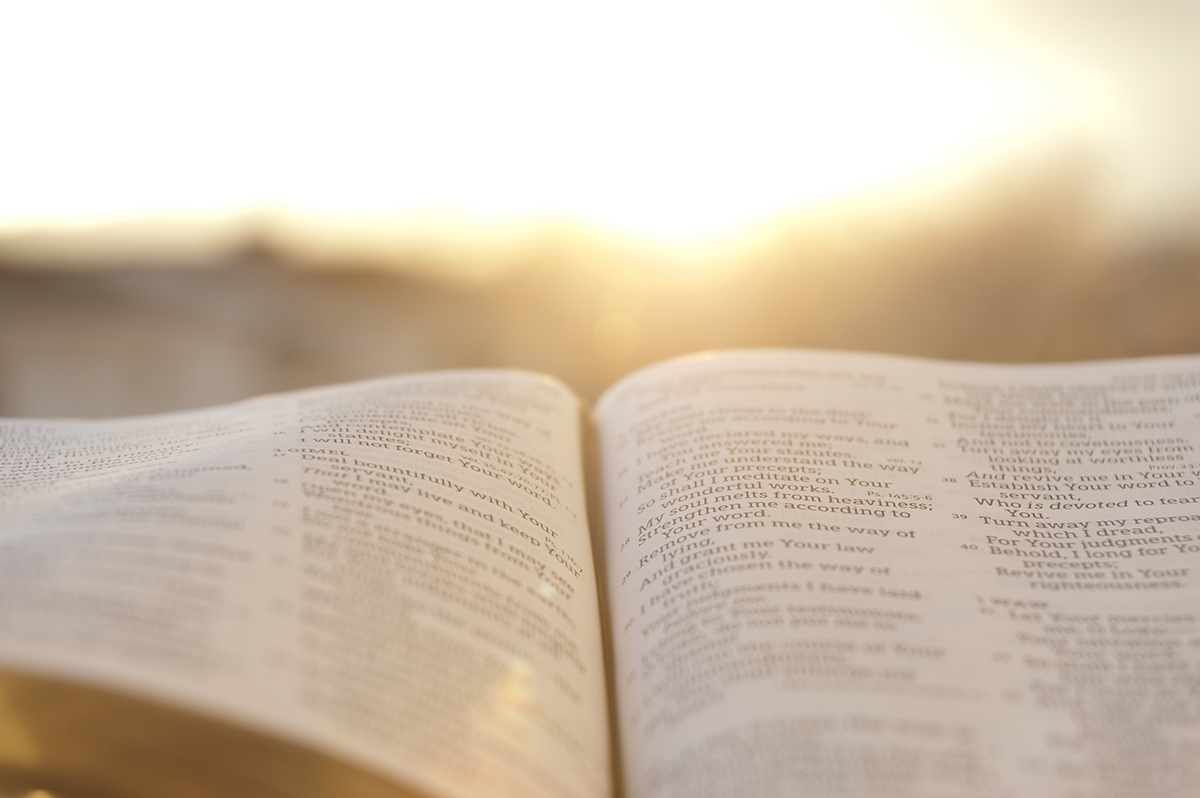

by Bobby L. Graham
What scriptural authority would you give for worshiping the Holy Spirit as in the song “Glorify Thy Name”?
Our reader is to be commended for appealing to what the Scriptures teach, especially in a day when so many are unconcerned about what the Bible teaches. Too many have “moved on” to “something else, something better,” as they say; but notice what the Lord says, “Blessed is he who reads, and those who hear the words of this prophecy, and keep those things which are written in it” (Rev. 1:3). If the Bible does not authorize this action, or anything else, no one has any business teaching it or practicing it (1 Pet. 4:11; 1 Cor. 4:6).
To clarify the reference to the song in the question, we call attention to verse three, which states: “Spirit, we love You, we worship and adore You. Glorify Thy name in all the earth. Glorify Thy name, glorify Thy name, glorify Thy name in all the earth.” In this statement is expressed the worship of the Spirit which our questioner mentioned.
Beyond any doubt, the Bible teaches that the Holy Spirit, being One of the Godhead, is just as divine as the Father and the Son (Acts 17:29; Matt. 12:28; cf. Luke 11:20; Ps. 139:7-10; 1 Cor. 2:10-11). As One equal in deity, He deserves the worship of God’s creatures because He is Deity, just as the Father and the Son deserve it (Matt. 4:10; Rev. 22:9).
Besides this consideration based upon the reasoning of the preceding paragraph, there are some passages which demand the conclusion which we have already reached in this article. When Hebrews 3:7-11 quotes from Psalms 95:8-9, it refers to the “Me” in Psalms 95:9 as the “Holy Spirit” in Hebrews 3:7. If the reader will go back to verse one in Psalms 95 and read all the way through verse nine, he will see that the Holy Spirit, as we learned in Hebrews 3:7, was at least included in “Jehovah” in verses one and six, where He receives singing and worship. The Spirit is identified as “Jehovah,” along with the Father and the Son. To see this point again illustrated, we refer the reader to Jeremiah 31:33, and then to Hebrews 10:15-16, where, in a parallel statement, the Spirit replaces Jehovah (Lord in some versions) in the Isaiah passage. The Holy Spirit is Jehovah, like the Father and the Son.
Another passage is 2 Corinthians 13:14, where Paul prayed to the Father, Son, and Holy Spirit, because each one was able to effect blessing in the lives of the saints in Corinth. God the Father could effect love, the Lord Jesus Christ could effect grace, and the Holy Spirit could effect communion (fellowship) with them. Paul’s prayer was that these blessings “be with you all.” It seems that he prayed to them because each was powerful to bless in the way stated, not merely to one of them, in this verse of benediction.
Revelation 1:4 is a similar verse, where each divine being is identified as the source of grace and peace; the Holy Spirit is “the seven Spirits that are before His throne,” connoting the fullness of knowledge and of divine revelation. Note that all members of the godhead work together in this dispensing of blessings, just as they all deserve our praise and worship for their work. It just might be significant that in Revelation 4, when the praises of God were sung by the living creatures and the twenty-four elders, the seven Spirits did not join them, though also present (v. 5). No, they were worthy of receiving this praise, not givers of praise in this instance.
I believe that the song in question scripturally ascribes worship, adoration, and glory to the Spirit of God for the reasons given. If the reader is unconvinced, he should not sing this part of the song; but at least he should consider the lines of reasoning and the passages explored in this study. By all means, let him avoid divisive words and actions over this kind of matter. 


